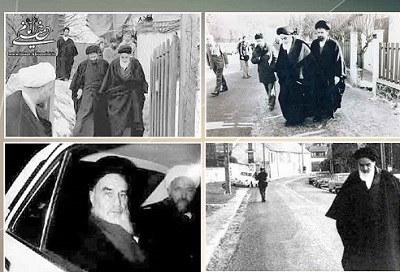- News code: 1270946
- Source: en.imam-khomeini.ir
Experts maintain that the Iranian Revolution under the wise leadership of Imam Khomeini has been a unique and unprecedented phenomenon of this century and it was great accomplishment for those who pursue the notion of self-determination and independence.
The Islamic Revolution also achieved several gains on domestic and international arenas and made several achievements in social, political and cultural fields.
The religious leader of the Muslim world founded very comprehensive Islamic-democratic system along with very strong institutions which are excellent instances of good practices and unique governance.
The wise leadership of Imam also changed balance of power as the colonial powers cannot unilaterally further their agenda or policies in the Middle-East Region or other important strategically important regions of the world.
Imam Khomeini founded very strong institutions and exerted efforts to build a comprehensive infrastructure.
He also recommended forming the Islamic Revolution Guards Corps (IRGC) which remained at the forefront of defending the country’s sovereignty and territorial integrity during the eight-year long imposed war by former dictator Saddam Hussein. Imam also made several reforms among the army. The Iranian military, air and naval forces remain the most competent among the region to promote peace and stability.
Imam immediately held historic referendum immediately following the revolution which was approved by majority of the voters who voted in favor of the Islamic-democratic system.
Several elections have been held over more than past three decades since the downfall of the Shah regime.
The president is elected through a popular vote and presidential elections are each four years and the parliamentary voted is held for a term of five-year in Iran. The lawmakers elected from different regions of the country pass the bills, laws, legislation and monitor the government performance.
Imam also directed to set up many institutions to enhance agriculture, industry and education.
The great leader pursued a campaign to promote education and due to Imam’s untiring efforts Iran was turned into one of the most literate country in the Middle East region and beyond.
Imam also guided to form the assembly of experts members of which are elected by the popular vote of masses. The assembly wrote the charter and basic constitution and the Islamic laws were enshrined in this charter of great significance.
The Iranian constitution drafted following the victory of the Islamic Revolution earns its legitimacy from God the Almighty and his devotees and attaches great importance to human esteem and dignity.
The Iranian constitution has four following characteristics and distinctiveness:
a) Protection and preservation of interests and rights of all strata without any discrimination
b) Prediction of the needs of next generation and fulfillment of their needs in accordance with the Islamic laws
c) The laws were set in very explicative ways so they don’t become subject to wrong interpretation through the course of history
d) The laws and constitution should provide guidelines and inspire the Islamic movements and become role model for them
The Islamic Revolution stood against the storms of hurdles such as eight-year imposed war launched by Saddam regime and illegal sanctions imposed by the colonial powers.
It can easily be summed up that Imam established a system which tended heavily to rely on divine, human, social and democratic values where all strata were well protected and people could determine their own destiny.
Imam Khomeini frequently said that Islam was fully capable of establishing progressive democratic system.
Read more:
Imam Khomeini’s migration to Neauphle-le Chateau, a turning point in Iran’s History

